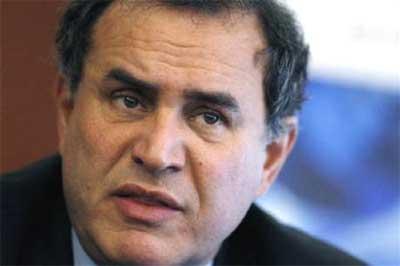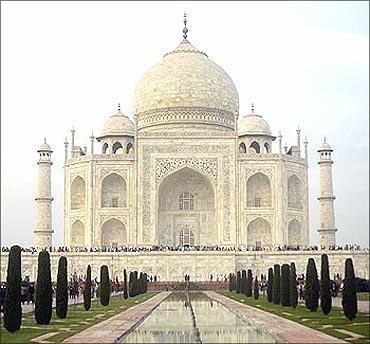 | « Back to article | Print this article |
India can grow faster than China: Roubini
Noted global economist Nouriel Roubini, who had predicted the global recession of 2008 in 2006, said that India had the potential to overtake China in economic growth.
"In the next few years, it is possible that the growth of India might surpass that of China, with India maintaining a close to double-digit growth, while China might slow down to eight per cent or so," said Roubini, while delivering the Lakshmipat Singhania Centennial Lecture on Thursday.
Roubini said countries like India, Indonesia, Brazil and Turkey, with their increasing reliance on domestic markets, have a "distinct edge" over China which is still dependent on trade and a weak currency to spur its growth story.
"As far as sustaining growth is concerned, China will have more challenges than India. Their economy is characterised by dependence on the US as the consumer of first and last resort, a mode of growth that has been challenged today," he added.
Click NEXT to read on . . .
India can grow faster than China: Roubini
Contrary to the views of many experts, Roubini said he considers the "vibrant" democracy of India an advantage over China because, despite hindering and slowing down the reform process, it instills a sense of "social acceptance and inclusion" in the reforms.
He said the challenges for India remain in tackling structural problems that are fuelling inflation. He said the Reserve Bank of India has been ahead of the curve in taking monetary policy decisions.
He also advocated faster privitisation of public sector units to enhance competition and efficiency, easing rigidity in the labour markets, increasing investment in infrastructure, urbanisation and skill development.
Moreover, he also suggested opening of foreign direct investment in multi-brand retail to further the growth story.
Click NEXT to read on . . .
India can grow faster than China: Roubini
Recovery to be slow: Roubini expressed his optimism about the Asian recovery story while sounding apprehensive about the pick-up in the western advanced economies. He said advanced economies will still have to battle the risks of a painfully slow recovery due to unsustainable budget deficits, increasing public debts, falling incomes and stagnating productivity.
Emerging markets, he said, appear to be on a strong footing, with some economies expected to grow above potential, raising concerns of over-heating. The strengths of the emerging markets lay in their relatively better debt and budget deficit situation and lessons from previous experiences of economic crisis with sounder bank capital and regulation norms.
Short-term solutions: Voicing his concern over the difficult policy challenges before advanced economies in the current scenario, Roubini said after the second round of quantitative easing, measures taken by the Unites States of America in the first week of November, Japan and the United Kingdom will be forced to follow suit.
"I expect Japan and even the United Kingdom to be going for quantitative easing measures to increase liquidity in the system in the next few weeks," said Roubini.
He said these measures were temporary solutions and some of the liquidity generated might chase risky assets while some will chase commodities fuelling inflation in emerging markets.



